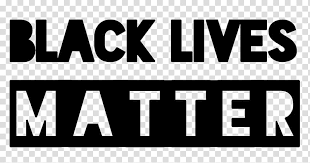In the wake of the racial-justice protests in the United States and other countries following the death of a black man allegedly because of police brutality in the US, there are many customers who have pledged to direct their spending towards companies that are Black-owned. This has prompted a number of global personal-care brands founded by Black people such as L'Oreal SA, Unilever and other multinationals to reassure their core customers about their recognition of their Black heritage.
For example, L'Oreal's multicultural beauty brand Carol's Daughter has said that it wanted to "clear some things up" when it posted a message on its Instagram page. Carol's Daughter was founded in 1993 by a Black woman in her Brooklyn kitchen and was named after her mother.
"Carol's Daughter is Black-founded, and Black-led, and joined the L'Oreal family of brands in 2014," it said. The statement said that the founder Lisa Price "is still actively involved in all aspects of the business; leading the brand's product development and creative vision."
Currently, Lisa Price is a senior vice president and creative director at Carol's Daughter. The brand is a part of the Multi-Cultural Beauty Division at L'Oreal USA. Price is also part of the Executive Committee at L'Oreal USA.
In recent years, a number of multinational companies have lapped up products that are aimed at Black consumers and have marketed such brands as being authentically Black that also have homemade formulas. The brands are also offering personalized care and products and the marketing campaigns are not often of the feel-good types.
But ever since the protests over the death of the unarmed Black man, George Floyd, in the US, many consumers have openly pledged to make more purchases from Black-owned businesses so that they are able to play a part in bringing in greater racial equity.
Following the purchase of Sundial Brands, a New York-based beauty firm by the Anglo-Dutch multinational Unilever, a personal care company founded in Harlem by Liberian immigrants in 1991, SheaMoisture, was also acquired as a part of the deal. In June, there were threats from Black consumers of boycotting the products of the brand because of their concerns over the corporate ownership of the brand.
A message on Instagram to assuage such jittered customers was posted by soon after by Cara Sabin, CEO of Sundial Brands, which operates as a standalone unit within Unilever. "I am a Black CEO, in White corporate America, leading a brand that exists to serve our Black consumer," Sabin wrote.
According to a report by Nielsen, a data analytics firm that tracks consumer purchases, it is estimated that the spending power of Black consumers in the United States will increase to $1.5 trillion by 2021 compared to about $1.3 trillion last year. 13.4 per cent of the total population of the US is comprised of people of the Black community and these consumers spend more than other communities and groups in product categories such as hair care and beauty, and women's fragrances. For example, 85 per cent of the $63 million total US industry-spend on multicultural hair care products was made by accounted Black shoppers in 2017.
Companies "making money off of Black consumers should have leadership that reflects the consumers that purchase the brands,” said Dana Williams-Johnson, Instructor in the Howard University School of Business Marketing Department.
"How diverse are these company's boards? How many Black people are at the top with a seat at the boardroom table? How much do all these brands truly value the Black dollar? Those will be the questions that need answers next," she added.
(Source:www.firstpost.com)
For example, L'Oreal's multicultural beauty brand Carol's Daughter has said that it wanted to "clear some things up" when it posted a message on its Instagram page. Carol's Daughter was founded in 1993 by a Black woman in her Brooklyn kitchen and was named after her mother.
"Carol's Daughter is Black-founded, and Black-led, and joined the L'Oreal family of brands in 2014," it said. The statement said that the founder Lisa Price "is still actively involved in all aspects of the business; leading the brand's product development and creative vision."
Currently, Lisa Price is a senior vice president and creative director at Carol's Daughter. The brand is a part of the Multi-Cultural Beauty Division at L'Oreal USA. Price is also part of the Executive Committee at L'Oreal USA.
In recent years, a number of multinational companies have lapped up products that are aimed at Black consumers and have marketed such brands as being authentically Black that also have homemade formulas. The brands are also offering personalized care and products and the marketing campaigns are not often of the feel-good types.
But ever since the protests over the death of the unarmed Black man, George Floyd, in the US, many consumers have openly pledged to make more purchases from Black-owned businesses so that they are able to play a part in bringing in greater racial equity.
Following the purchase of Sundial Brands, a New York-based beauty firm by the Anglo-Dutch multinational Unilever, a personal care company founded in Harlem by Liberian immigrants in 1991, SheaMoisture, was also acquired as a part of the deal. In June, there were threats from Black consumers of boycotting the products of the brand because of their concerns over the corporate ownership of the brand.
A message on Instagram to assuage such jittered customers was posted by soon after by Cara Sabin, CEO of Sundial Brands, which operates as a standalone unit within Unilever. "I am a Black CEO, in White corporate America, leading a brand that exists to serve our Black consumer," Sabin wrote.
According to a report by Nielsen, a data analytics firm that tracks consumer purchases, it is estimated that the spending power of Black consumers in the United States will increase to $1.5 trillion by 2021 compared to about $1.3 trillion last year. 13.4 per cent of the total population of the US is comprised of people of the Black community and these consumers spend more than other communities and groups in product categories such as hair care and beauty, and women's fragrances. For example, 85 per cent of the $63 million total US industry-spend on multicultural hair care products was made by accounted Black shoppers in 2017.
Companies "making money off of Black consumers should have leadership that reflects the consumers that purchase the brands,” said Dana Williams-Johnson, Instructor in the Howard University School of Business Marketing Department.
"How diverse are these company's boards? How many Black people are at the top with a seat at the boardroom table? How much do all these brands truly value the Black dollar? Those will be the questions that need answers next," she added.
(Source:www.firstpost.com)






